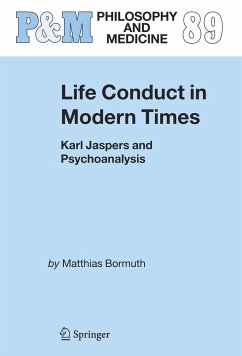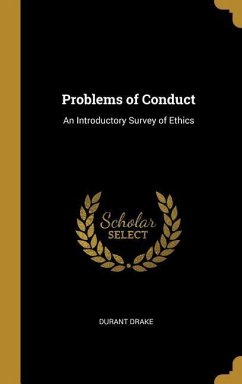We read, but we are also read by others. Interferences of these readings. Forcing someone to read himself as he is read (slavehood). Forcing the others to read me as I read myself (conquest). 1 Simone Weil Karl Jaspers was born in Oldenburg in 1883, grew up in a liberal-minded banker's family, studied medicine and was granted a chair in philosophy at the Uni- 2 versity of Heidelberg in 1922. The decisive factor in this appointment was Jaspers' 1919 monograph Psychology of World Views (Psychologie der Weltanschauungen), 3 which founded so-called 'existence philosophy'. What is less known is that in 1913 Jaspers had already published an epoch-making methodological systematics, his General Psychopathology (Allgemeine Psychopathologie), which had established 4 him as an authority in the field of psychiatry in the German-speaking world. As a result of this as well as the fact that Jaspers addressed questions concerning physi- 5 sicians' self-identity, Jaspers is now celebrated as oneof the "classic figures of 6 medicine". 1 Weil (1990), pg. 134. 2 Karl Jaspers (1883-1969) worked as a psychiatrist in Heidelberg starting in 1909, and from 1914 on he held a position as a Privatdozent for psychology in the Department of Philosophy after having completed his Habilitation. In 1920 he was granted an assistant professorship and in 1922 a chair in this department. In 1937 he was forced to retire because his wife was Jewish. In 1945 he was reinstated.
Hinweis: Dieser Artikel kann nur an eine deutsche Lieferadresse ausgeliefert werden.
Hinweis: Dieser Artikel kann nur an eine deutsche Lieferadresse ausgeliefert werden.
On the German version of this book: "As a profound expert on the work of Karl Jaspers, the author has carefully and in a well-informed manner investigated the philosopher¿s controversy with the leading psychoanalysts of the time. [...] All in all an extensive study that captivates through its extraordinary quality of language." - Christian Müller, Gesnerus. Swiss Journal of the History of Medicine and Sciences "A masterwork of a scholarly, clear and impartial presentation which illuminates the border area between philosophy and psychoanalysis." - Hartmut Raguse, Theologische Literaturzeitung "Simply impressive. Bormuth undertakes nothing less than to reconstruct the philosophy of Jaspers in its complete historical context." - Ingo-Wolf Kittel, Der Nervenarzt








